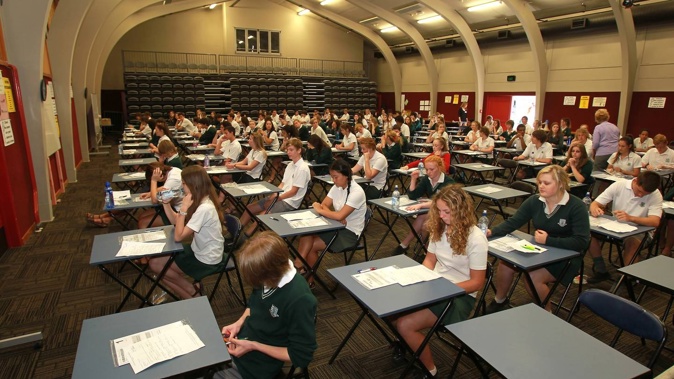
The country's secondary schools principals association has called for students, teachers and central government to all play their part in turning around the nation's three-year decline in NCEA pass rates, following the release of last year's final results yesterday.
Provisional results confirmed a third-year decrease in students passing their NCEA qualifications, it's a dip that NZQA has linked to the lingering effects of the Covid-19 pandemic that interrupted student learning.
As Secondary Principals Association president Vaughan Couillault told Summer Breakfast, the news won't be music to the sector's ears.
"The teaching workforce is never excited when results go down. I have to say, across the country, we'll all be a bit disappointed," he said.
"Having said that, it's not entirely unexpected given the gaps in knowledge that I'd say many teachers had uncovered over the last year or so ... a bit of a hangover to what we were experiencing in 2020 and 2021 and a bit in 2022."
Couillault said it was mainly a matter of disengagement in schools, where a situation was created over the pandemic where the right move was for students to stay at home. However, "turning the lights" back on in the machinery of education was challenging.
It was easy to disengage in something like education, according to Couillault, and much harder to switch back on and get involved in learning once more.
Other countries are experiencing similar challenges around school truancy and trying to motivate students to study at the level of pre-Covid education.
"They're seeing a challenge in getting students back to school, they're seeing damage to the achievement levels in school. There was a recent article in the Herald about what it was like in Australia," said Couillault.
"It wasn't necessarily education-specific but it was all the same things we've experienced with workforce engagement back in many jurisdictions, so I don't think our story stands alone."
Couillault had faith in the teaching workforce as well as the young people involved in the system. The drop off in achievement wasn't because, in his opinion, "young people stink", as was borne out by the inspiring levels of outcome still being achieved over recent years.
The teaching workforce is still considered "incredibly motivated", said Couillault, despite disruption from challenges like weather events and industrial action over the previous year - although neither could considered justifiable for the dip in results, the association president said.
"But I would say students and teachers alike are looking at these results, in terms of those staying in the secondary sector, [and] students will either be pleased with how they performed or a little disappointed," he said.
"There's stuff that they can do in February, because of course they're only provisional results so you can get in contact with your school - if you have 77 credits and you need 80, there are things we can do for you over the next few weeks."
Students might also be thrown more assessment and learning opportunities through summer school programmes as a way to provide further chances to pass the school year. Te Kura also provides options for boosting credit scores.
"There are a number of opportunities available, so rolling up your sleeves and getting on with it is the precedent."
Turning the conversation to central government, Couillault believed newly elected Education Minister Erica Stanford had jumped into a "challenging portfolio".
"I know the minister before her had the same situation where they're picking something up that had a bit of a change and programme applied to it over the last little bit," he said.
Couillault said teachers didn't need to be told to roll their sleeves up and get stuck in, that was their intrinsic motivation. Instead, the government needed to step in and provide encouragement and answers to obstacles preventing student learning.
"We need confidence in the qualification and we have to have confidence that the resourcing and support we need to do our job, in terms of provision for a public good, is provided in such a way it makes our job doable instead of impossible."
Take your Radio, Podcasts and Music with you









